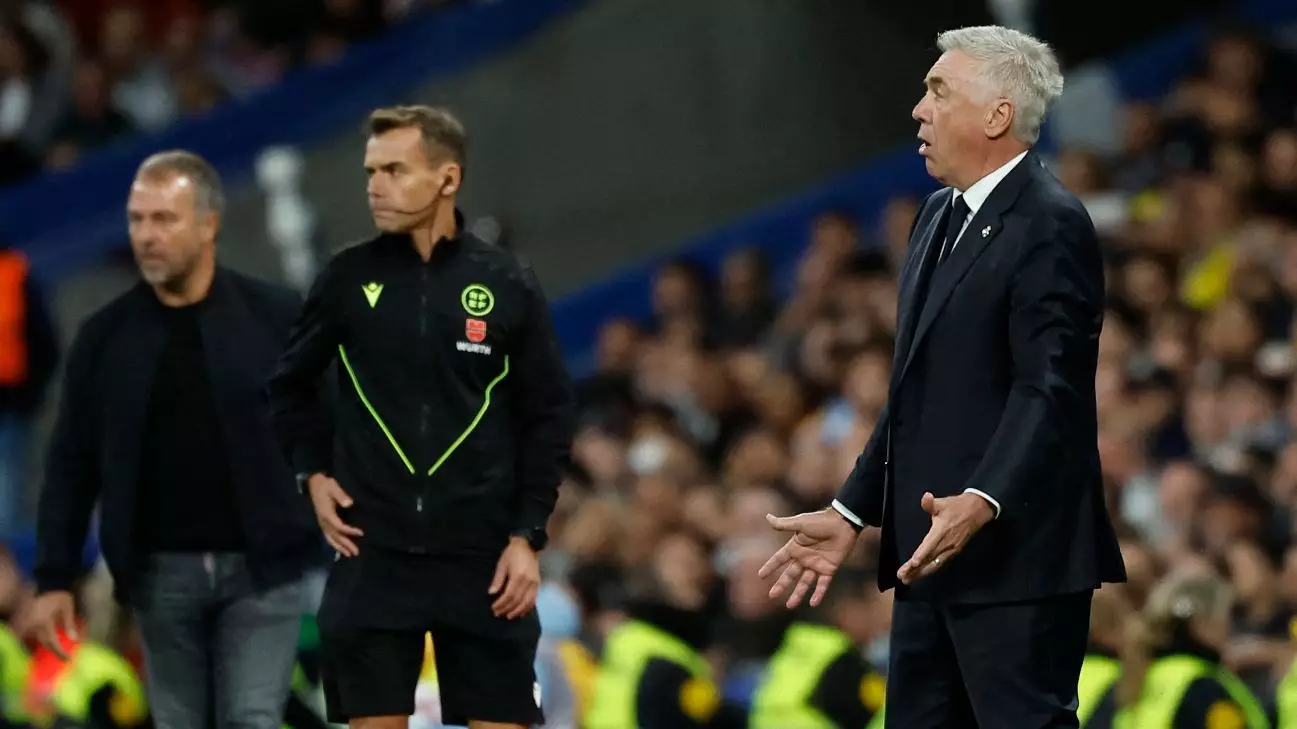The most anticipated fixture in La Liga, the Clásico, drew fans from across the globe as Real Madrid faced arch-rivals Barcelona at the iconic Santiago Bernabéu Stadium. The aura surrounding this historic match promised a titanic clash, especially after Madrid’s recent dominance over the Catalan side. However, as the final whistle blew, it was clear that the narrative of the match had shifted dramatically, providing ample talking points for both teams and their fans. The contest finished with a resounding 4-0 in favor of Barcelona, marking an end to Madrid’s impressive 42-game unbeaten streak in the league.
Barcelona’s strategy, meticulously orchestrated by head coach Hansi Flick, was a blend of disciplined defense and clinical counterattacking. The team executed their game plan flawlessly, with key players stepping up when it mattered most. Robert Lewandowski’s brace not only showcased his striking prowess but also demonstrated Barcelona’s ability to capitalize on the pressing mistakes made by the Madrid defense. With Lamine Yamal becoming the youngest scorer in Clásico history and Raphinha adding to the scoreline, the festivities on Barcelona’s bench were a testament to their effective execution of the game plan.
Madrid’s defense faltered after a promising first half, revealing vulnerabilities that had previously eluded them. Flick’s side capitalized on Madrid’s hesitance, using the momentum of their first goal to dictate the pace and rhythm of the match. When energy began to sap from the Madrid players in the second half, Barcelona pounced, showcasing their capacity to exploit the slightest openings.
The aftermath of the match saw Real Madrid’s coach Carlo Ancelotti grappling with disappointment and frustration, not just regarding the scoreline but over the conduct of Barcelona’s bench during the latter stages of the game. His pointed remarks about one of Flick’s assistants highlighted a deeper concern about sportsmanship in high-stakes matches. Football is rife with raw emotions, especially in rivalries such as this. Celebrating in proximity to the opposing bench can easily escalate tensions, and Ancelotti’s irritation reflected a desire for respect among competitors, even amidst the jubilation of victory.
Despite the bitter taste of defeat, Ancelotti attempted to take a measured approach in his post-match reflections. He recognized that while the performance dipped dramatically after the break, the first half showcased a Madrid side with fight and determination. This juxtaposition between the halves echoed the team’s need for resilience in the face of adversity—a characteristic that champions display.
The match served as a tough initiation for Kylian Mbappé, whose performance was riddled with missed opportunities and frustration. With two goals disallowed for offside and a staggering eight instances of being caught offside in total, Mbappé’s struggles personified Madrid’s difficulty in overcoming Barcelona’s high defensive line. His positioning might have been a tactical gamble, but it also highlighted the lack of synchronization between midfield and attack.
Ancelotti’s comments affirmed the challenges of harnessing Mbappé’s talents against such a resolute defense. The tactical risks taken by Madrid did not materialize as expected, leading to an unproductive evening for one of the sport’s brightest stars. This aspect would likely weigh heavily on Ancelotti as he sought to find the right formula moving forward.
While the loss was undoubtedly a setback for Real Madrid, Ancelotti’s focus on learning rather than despairing is crucial for the team’s morale. The ability to rebound from a significant defeat often defines a team’s character over the long term, and history has shown that setbacks can serve as pivotal learning moments. Madrid’s current position in La Liga may not be ideal, but the season is still young.
Moreover, Barcelona’s impressive form under Hansi Flick, notably their recent 4-1 demolition of Bayern Munich, signals a turning point for the Catalan powerhouse. Flick’s focus on improvement could fuel further confidence as players adapt to his tactical genius. As a result, both teams must cultivate their lessons from the Clásico; for Barcelona, it is about maintaining momentum, while for Madrid, the emphasis shifts towards resilience and learning from the fire of experience.
The Clásico outcome serves as a reminder of the unpredictable nature of football, where initiatives can shift with the smallest margin. Ancelotti’s Madrid, while hurt, hold the potential for rebirth; meanwhile, Barcelona, buoyed by their triumph, stand on the cusp of asserting their dominance in La Liga. The journey ahead for both clubs will undoubtedly produce further drama, excitement, and, of course, lessons learned.


Napsat komentář